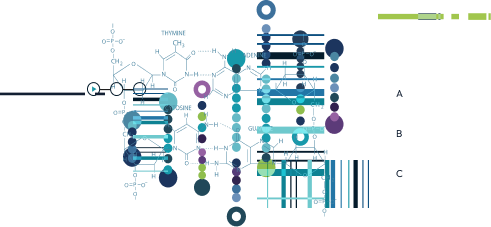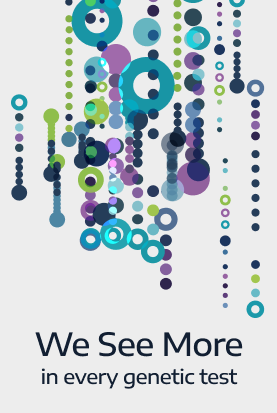Prenatal Testing Comparison

IriSight® CNV Analysis
IriSight® CNV Analysis is a genetic test performed during pregnancy to look for chromosomal conditions in a fetus. It is similar to NIPT/NIPS (NonInvasive Prenatal Testing, NonInvasive Prenatal Screening) and chromosomal microarray (CMA) tests, but there are important differences.
First, NIPT is predictive – it can only suggest that a fetus is at high or low risk of having a certain chromosomal condition. Both CMA tests and IriSight® CNV Analysis are amniocentesis* or chorionic villus sampling (CVS)-based, diagnostic tests that provide definitive answers.
Second, NIPT, CMA and IriSight® CNV Analysis use different sequencing technologies that affect the type and size of chromosomal changes that can be detected. The table below provides a comparison.
*Amniocentesis or CVS is sometimes recommended when ultrasound results are abnormal.
IriSight® Comprehensive Analysis – Prenatal
IriSight® Comprehensive Analysis – Prenatal is a genetic test performed during pregnancy that goes beyond IriSight® CNV Analysis to identify additional types of DNA changes in a fetus that can cause early-onset genetic disorders such as cystic fibrosis and fragile X syndrome. Similar to exome testing, IriSight® Comprehensive Analysis – Prenatal is an amniocentesis* or CVS-based, diagnostic test that provides definitive answers – but there are important differences.
Exome testing and IriSight® Comprehensive Analysis – Prenatal use different sequencing technologies that affect the type and size of DNA changes that can be detected. The table below provides a comparison, highlighting that only IriSight® Comprehensive Analysis – Prenatal can detect variants ranging from small sequence changes to mitochondrial variants and repeat expansions.
*Amniocentesis or CVS is sometimes recommended when ultrasound results are abnormal.
Prenatal testing differences
NIPT | CMA | IriSight® CNV Analysis | Exome | IriSight® Comprehensive Analysis – Prenatal | |
Sequencing Technology | SNP technology: sequences <1% of DNA | SNP technology: sequences <1% of DNA | Genome technology: sequences >98% of DNA | Exome technology: sequences 1-2% of DNA | Genome technology: sequences >98% of DNA |
Chromosomal changes that can be detected | |||||
Down syndrome, Edward syndrome, Patau syndrome |  |  |  |  |  |
Additional autosomal aneuploidies | Not detected |  |  |  |  |
Monosomy X (Turner syndrome), XXY syndrome (Klinefelter syndrome), Triple X syndrome, XYY syndrome (Jacob’s syndrome) |  |  |  |  |  |
Microdeletions | Subset are detected |  |  |  |  |
CNVs | Not detected | Detected with size limitations |  | Detected with size limitations |  |
Inversions | Not detected | Varies |  | Not detected |  |
Additional changes that can be detected | |||||
Small sequence changes | Not detected | Not detected | Not detected |  |  |
Mitochondrial | Not detected | Not detected | Not detected | Varies |  |
Repeat expansions | Not detected | Not detected | Not detected | Not detected |  |
See IriSight® CNV Analysis and IriSight® Comprehensive Analysis – Prenatal test specifications for more information.
Definitions
Aneuploidy – A condition where an abnormal number of chromosomes is present. Trisomy and monosomy are both types of aneuploidy
Trisomy – A condition where an extra copy of a complete chromosome is present
Monosomy – A condition where a complete chromosome is missing
Microdeletion – A type of DNA change where a portion of a chromosome is missing
CNV – Copy Number Variant, a type of DNA change where the number of copies of a DNA segment is changed. CNVs include deletions (where a copy is missing) and duplications (where an extra copy is present)
Inversion – A type of DNA change where a DNA segment is present in reverse orientation or has been relocated to a different position within the genome
Small sequence change – A type of DNA change where a single base or small number of bases is altered
Mitochondrial – Changes in the mitochondrial genome
Repeat expansion – A type of DNA change where a sequence of bases is repeated in an expanded stretch
We See More, So You Know More
If your healthcare provider suggests amniocentesis or CVS, ask about IriSight®. The most comprehensive genetic testing available. Have questions?
